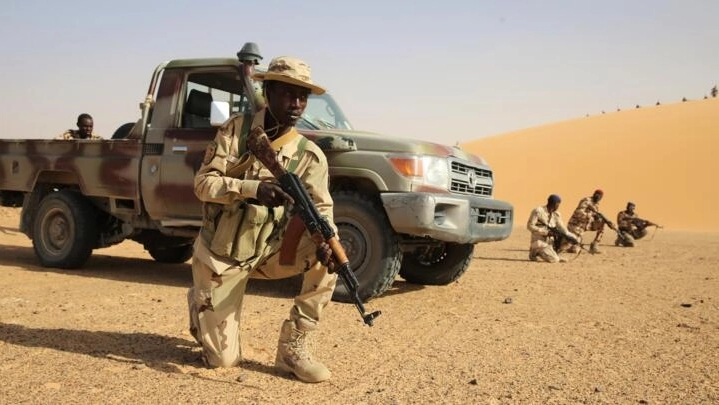The European Union (EU) has resumed its military aid to Chad after a period of suspension due to a diplomatic row between the Chadian junta and Germany. The EU is planning to provide €12m to support the Chadian Armed Forces (FAT) in the south of the country, where they are facing security challenges from rebel groups and cross-border threats.
The EU’s decision to relaunch its military aid project comes as a sign of improved relations with the Chadian transitional authorities, led by Mahamat Idriss Déby, who took power in April following the death of his father, Idriss Déby Itno, in a battle with rebels. The EU had frozen its military assistance to N’Djamena in early April, after the Chadian government expelled the German ambassador to Chad, Jan-Christian Gordon Kricke, accusing him of disrespect and lack of diplomatic etiquette. The EU condemned the move as a “hostile gesture” and expressed its concern over the lack of a clear roadmap for a democratic transition in Chad.
Also, at the time, Chads plans to modernize it’s US-donated Cessna 208 aircraft faced stiff resistance from the Belgium government which are worried over Chad’s spotty human rights track record. The Belgian government cited the brutal repression of demonstrations last October by Chadian security forces that left around fifty people dead.
However, in recent weeks, the Chadian junta has shown some signs of openness towards the opposition and civil society, as well as regional and international partners. One of the most prominent opposition figures, Succès Masra, the leader of the Les Transformateurs movement, returned to Chad on 3 November after more than a year in exile. He had been subject to an international arrest warrant issued by N’Djamena, but he reached an agreement with the transitional authorities on 1 November, with the mediation of the Congolese President Félix Tshisekedi.
The EU’s military aid package for Chad is part of the European Peace Facility (EPF), a new instrument that allows the EU to finance military and defence-related activities in partner countries. The EPF has a budget of €5bn for the period 2021-2027 and aims to enhance the EU’s role as a global actor in peace and security. The EPF will fund several projects for the Chadian army in the Chari-Baguirmi region, such as the provision of equipment, training, infrastructure and logistics. The EU hopes that this support will help the FAT to improve their operational capacity and professionalism, as well as to respect human rights and international humanitarian law.
The EU considers Chad as a key partner in the Sahel region, where it is engaged in several initiatives to promote stability, development and governance. The EU supports the G5 Sahel Joint Force, a regional security mechanism composed of Chad, Burkina Faso, Mali, Mauritania and Niger, which aims to combat terrorism and organised crime in the area. The EU also participates in two military missions in the Sahel: EUTM Mali, which provides training and advice to the Malian armed forces, and EUCAP Sahel Niger, which supports the Nigerien security sector reform. In addition, the EU is a major donor of humanitarian and development aid to the Sahel countries, including Chad.
Chad’s efforts to forego it’s traditional suppliers for Western and European arms in order to reinforce the legitimacy of General Itno Déby regime seems not to be going according to plans.
Last year, the European Union ended some of it’s military training commitments in Mali due to continued cooperation between Russian mercenaries and Mali’s junta. But the EU says it remains committed to the region.
“We are halting the training missions for the (Malian) armed forces and national guard,” EU foreign policy chief Josep Borrell told a media conference on Monday in Brussel, but added: “The Sahel remains a priority. We’re not giving up on the Sahel, far from it. We want to commit even more to that region.”
